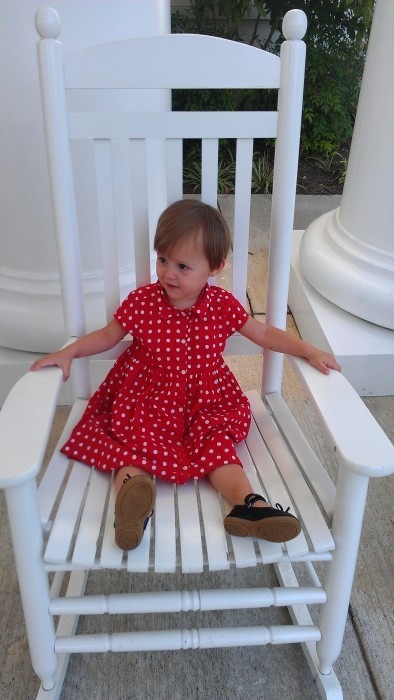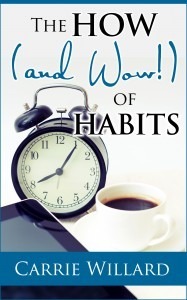Today I want to talk about the power of small actions to bring about big changes, and why “Some Beats None” is one of my favorite expressions.
But first, a story.
My 3 year old daughter Ruby has been resisting naptime for well over a year. I know she is not ready to give up her nap, because her behavior begins to fall apart after 2 PM each day, and if we happen to go somewhere in the car (and she is of course confined to her car seat), she falls asleep quickly.
The entire afternoon and evening can hinge on whether Ruby gets her nap.
If she doesn’t, the late afternoon until bedtime is one caprice after another, dinnertime is stressful, and my husband and I will collapse into bed with negative feelings about the day.
I’ve tried many things to try to get her to nap, most with little success, and much fatigue and frustration.
But today, I tried something different, something I had not tried before. At the baby’s naptime (Victoria is 14 months), I sent everyone to their rooms for quiet time, closed the blinds in the living room, and had Ruby lie on the sofa with a blanket.
I rocked the baby and began reading a book. If Ruby got off the pillow or sat up, I immediately stopped reading. (She tried it a couple of times, and I would instantly stop reading, as if I was playing a game of musical chairs.)
By the time I had finished reading a picture book aloud, Ruby was OUT cold.
If you had not been living in my house for the last two years, you wouldn’t realize what a simple victory this was. I got the preschooler to sleep quickly and easily, in the time it took to read one book, and without resorting to harsh discipline practices that I would prefer to avoid.
I’m not sure which part of this naptime scenario did the trick, but I’m thrilled – it was quick and painless for all involved.
And yet that simple action will have a tremendous impact on the rest of my day, and that of my family.
Small actions, habits, simple changes – they can bring about big improvements in your health, happiness and even finances.

Here’s an example.
Let’s say Woman A drinks a Coke every day. Drinking the calories in ONE 12 oz. Coke every day can lead to a 15 pound weight gain in a year’s time. One Coke doesn’t seem like such a big deal, but one each day can make you go from svelte to zaftig, without even trying. 15 pounds is enough to put you from the “ideal weight” to “overweight” category.
Women B decides that instead of reaching for a Coke to boost her energy in the late afternoon, she will head outside for a short walk.
A woman who weighs 140 pounds who walks only 20 minutes (one mile) a day can LOSE 9 pounds in a year, even if she makes no changes to her eating habits. (But she would probably lose more than that, because exercise boosts the metabolism and leads to more weight loss than the actual number of calories burned.) She can still have the foods she enjoys, doesn’t have to join an expensive gym or wear ridiculous-looking neon lycra, or blow out her kneecaps and shins.
And from what we know about keystone habits, that daily walk will spillover into other areas of her life. She’ll be happier (research says that moderate exercise is just as or more effective as antidepressants), she’ll be less likely to charge up credit cards (perhaps because she won’t engage in retail therapy?), and she’ll be a better parent.
That’s a lot of change for just ONE habit. One small thing.
This is just one reason I’m enamored with habits. They illustrate the power that small changes have in transforming our lives.
As I mentioned, “Some Beats None” is one of my favorite expressions. I got it from Jon Acuff’s wonderful book, Start: Punch Fear in the Face, Escape Average and Do Work That Matters. Doing a little something in the direction of your goals will always beat not taking action.
When it comes to changing our lives for the better, we often get caught up in big, overwhelming, sweeping change.
But focusing on smaller, incremental tasks is more sustainable for most of us.
I can’t afford French lessons right now, but I CAN spend 10 minutes a day on a free language learning app like DuoLingo or Babbel.
I can’t go to Paris this year, but I CAN put a little money aside each month in a savings account so that I can make that trip in a few years. (And by then, I’ll be conversational in French!)
What do you think?
More about the How and (Wow!) of Habits here.


Leave a Reply